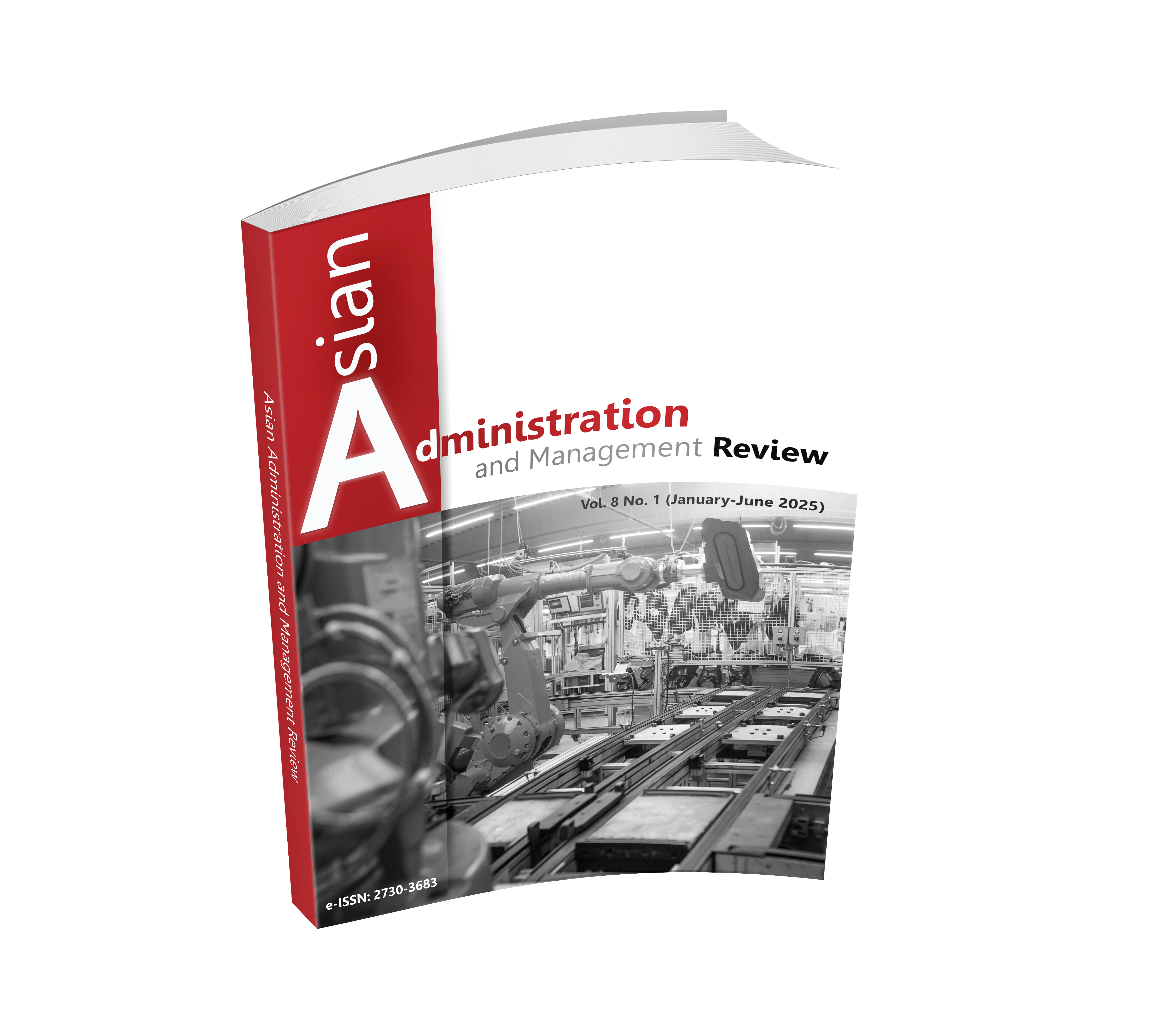SUSTAINABLE FOOD TOURISM: IMPACTS, OPPORTUNITY, AND CHALLENGES IN THE MODERN ERA
DOI:
https://doi.org/10.14456/aamr.2025.3Keywords:
Food Tourism, Sustainability, Gastronomic TourismAbstract
Food tourism has recently emerged as a significant trend in the global tourism industry, especially after the COVID-19 outbreak, as people are looking for some pleasurable experience such as authentic culinary experiences. This study aims to explore how food tourism can promote sustainability by examining its economic, socio-cultural, and environmental impacts. The researcher uses qualitative research methods, in-depth interviews were conducted with key stakeholders, including local producers, restaurant owners, tourism operators, and sustainability experts. The findings reveals that sustainable food tourism plays a significant role in local economies by promoting farm-to-table practices and local ingredients sourcing, and enhancing economic resilience. However, there are some challenges emerged in the food tourism scene, such as the high costs of sustainable preactice and the risk of over-commercialization were found. In socio-culturally aspect, food tourism helps preserve local culinary traditions, but concerns about the loss of authenticity due to the influence of global tourist preferences were raised. On the environmental aspect, sustainable practices in food tourism such as reducing food waste and promoting organic farming are mitigating negative impacts, though over-tourism and resource depletion remain significant challenges.
Downloads
References
Bessière, J. (1998). Local Development and Heritage: Traditional Food and Cuisine as Tourist Attractions in Rural Areas. Sociologia Ruralis, 38(1), 21-34.
de Jong, A., & Varley, P. (2018). Food tourism and events as tools for social sustainability?. Journal of Place Management and Development, 11(3), 277-295.
Dong, Y., & Hauschild, M. (2017). Indicators for environmental sustainability. Procedia Cirp, 61, 697-702.
Ellis, A., Park, E., Kim, S., & Yeoman, I. (2018). What Is Food Tourism?. Tourism Management, 68, 250-263.
Everett, S. (2019). Theoretical turns through tourism taste-scapes: the evolution of food tourism research. Research in Hospitality Management, 9(1), 3-12.
Everett, S., & Aitchison, C. (2008). The Role of Food Tourism in Sustaining Regional Identity: A Case Study of Cornwall, South West England. Journal of Sustainable Tourism, 16, 150-167.
Fountain, J. (2022). The future of food tourism in a post-COVID-19 world: insights from New Zealand. Journal of Tourism Futures, 8(2), 220-233.
Hall, C., & Sharples, L. (2003). The consumption of experiences or the experience of consumption? An introduction to the tourism of taste. In C. Michael Hall, L. Sharples, R. Mitchell, N. Macionis, & B. Cambourne. (eds.). Food Tourism Around the World: Development, management and markets (pp. 1-24). London: Routledge.
Harris, R., Williams, P., & Griffin, T. (eds.). (2002). Sustainable Tourism. London: Routledge.
Hjalager, A., & Johansen, P. (2013). Food tourism in protected areas - sustainability for producers, the environment and tourism?. Journal of Sustainable Tourism, 21(3), 417-433.
Leer, J. (2020). Designing sustainable food experiences: Rethinking sustainable food tourism. International Journal of Food Design, 5(1-2), 65-82.
Liberato, P., Mendes, T., & Liberato, D. (2020). Culinary Tourism and Food Trends. In A. Rocha, A. Abreu, J. de Carvalho, D. Liberato, E. González, & P. Liberato. (eds.). Advances in Tourism, Technology and Smart Systems (pp. 517-526). Singapore: Springer.
Liu, H., & Li, B. (2021). Changes of Spatial Characteristics: Socio-Cultural Sustainability in Historical Neighborhood in Beijing, China. Sustainability, 13(11), 6212.
Long, L. (2010). Culinary tourism and the emergence of an Appalachian cuisine: Exploring the “foodscape” of Asheville, NC. North Carolina Folklore Journal, 57(1), 4-19.
Okumus, B. (2021). Food tourism research: a perspective article. Tourism Review, 76(1), 38-42.
Ong, L., Storey, D., & Minnery, J. (2011). Beyond the Beach: Balancing Environmental and Socio-cultural Sustainability in Boracay, the Philippines. Tourism Geographies, 13(4), 549-569.
Robinson, D. (2021). Rural Wine and Food Tourism for Cultural Sustainability. Tourism Analysis, 26(2-3), 121-133.
Sargant, E. (2014). Sustainable food consumption: a practice based approach. Doctor of Philosophy Thesis, Wageningen University.
Sutton, P. (2004). A perspective on environmental sustainability?. Retrieved from www.donboscogozo.org/images/pdfs/energy/A-Perspective-on-Environmental-Sustainability.pdf.
Weaver, D. (2006). Sustainable Tourism. London: Routledge.
Worrachananun, M. (2022). The Role of Music in Advertising Strategy on Tourist Attitude and Intention to Visit the Destination. Przestrzeń Społeczna (Social Space), 22(3), 438-456.
Worrachananun, M. (2023). A strategic planning management and a qualitative study of Bangkok adolescents' attitudes, consumption intentions and behaviors about fast food products. Retrieved from www.cabidigitallibrary.org/doi/pdf/10.5555/20230391882.
Yurtseven, H., & Kaya, O. (2011). Local Food in Local Menu: The Case of Gokceada, Tourismos. An International Multidisciplinary Journal of Tourism, 6, 263-275.
Zhong, Y., & Wu, P. (2015). Economic sustainability, environmental sustainability and constructability indicators related to concrete- and steel-projects. Journal of Cleaner Production, 108(A), 748-756.

Downloads
Published
How to Cite
Issue
Section
License
Copyright (c) 2025 Authors

This work is licensed under a Creative Commons Attribution-NonCommercial-NoDerivatives 4.0 International License.











.png)


